In 2009, while expanding its marketing capabilities in Europe, SIBUR acquired one of the region’s largest traders of liquefied petroleum gas. Today, that company is SIBUR International GmbH (SI), SIBUR’s export arm with a global sales footprint and representative offices across several continents. Headquartered in Vienna, the company has offices in Shanghai, Beijing, Qingdao, Guangzhou and Istanbul, and supplies products to 80 countries worldwide. Our warehouse facilities in ports on the Black, Baltic and East China Seas accept, store and ship SIBUR’s products. Our global team comprises more than 100 professionals hailing fr om 16 countries and speaking 25 languages.
Products fr om Siberia shape demand
Andrey Frolov, CEO of SI, says, “Attitudes towards export sales began to change with the arrival of a new management team between 2004 and 2007. There were objective factors that tipped the scales in favour of developing our own export programme. Financing new CAPEX projects required transparent and manageable export sales. With new capacity additions, equity investments in several joint ventures and the acquisition of new assets, our export programme has grown in size. The competitiveness of our products in terms of physical, mechanical and chemical properties, our distribution network capabilities, the availability of trade finance and much more pushed us to actively learn fr om our peers and partners and adjust our processes and organisational structure. Of course, many things had to be rethought and tweaked on this long journey. What started with integrating a niche European trader into a Russian petrochemical holding company led to a step-by-step internationalisation of SIBUR’s business in general, both from an equity standpoint and the volume of export sales, which generate the bulk of SIBUR’s revenue.”
The COVID-19 pandemic has transformed the petrochemical industry, the shape of demand, and supply chains in Russia and globally. However, employees at SIBUR International saw a spike in demand for SIBUR’s products from across all destinations.
Until early 2019, for example, SIBUR International‘s Turkish subsidiary (SIBUR Istanbul Uluslararası Tic. Ltd. Şti.) sold limited volumes of polypropylene and rubbers in Turkey as the then existing production capacity allowed for sales mainly in the local market. At the same time, the office was preparing for an expected surge in volumes following the launch of ZapSibNeftekhim – we were running some pre-marketing activities, getting to know potential customers and building up our customer base. With the launch of ZapSibNeftekhim in early 2019, we started supplying polyethylene to the Turkish market and were able to boost polypropylene sales.
Lilya Icten (basic polymer sales manager, Istanbul office, more than five years with the company) says, “Volumes ramped up exponentially – between April 2019 and March 2020, our sales grew tenfold! At first, it was difficult to adjust to such a growth, but owing to the whole team’s effort, we managed to become a top-three supplier in the local polyolefin market. The team also welcomed new colleagues, and we are attempting to break into new markets in Africa, India and Latin America. Our product is of very high quality, and it gives us great pleasure to introduce it to a wider consumer base.”
Dariusz Lukaszewski, a basic polymer sales manager from Poland, in charge of the local basic polymer market, agrees with his colleague from Istanbul, “With ZapSibNeftekhim launched, we were able to expand our product portfolio and provide a greater variety of products to meet customer needs.”
ZapSibNeftekhim’s quality products are in demand around the globe.
SIBUR International’s technical service is focused on product quality assurance activities across plants, in particular at ZapSibNeftekhim, which entails close cooperation with customers, as well with technical service and production teams at Russian facilities. Romain Luijkx (technical service manager, Basic Polymers, Vienna office) says, “Products manufactured in Siberia have to meet the needs of customers in Europe. We help our Russian colleagues with product descriptions and laboratory tests.”
Tarek El Mesallamy (a plastics and organic synthesis products sales manager, Vienna office) says that his business unit also demonstrates a steady sales growth. “I am in charge of selling DOTP, overseeing exports to North Africa and North America in 2020. SIBUR’s product range is constantly evolving; products are marketed by the best experts, and technical and logistics managers shape the supply chain. Our Plastics, Elastomers and Organic Synthesis business unit is a living example that a high level of customer satisfaction can be achieved by meticulously refining and tracking all business processes.”
A special approach to the LPG market
In the first half of the year, the market eyed the implications of the OPEC+ deal on oil prices, production and refining. The LPG market saw a downturn, while global supply chains faced transport disruptions and demand volatility.
Izabela Ikic (hydrocarbon feedstock sales manager, Vienna office, nine years with the company) says, “Export shipments of LPG have been on the decline since the launch of ZapSibNeftekhim, but our workload remains high as new tasks have emerged. We receive the most up-to-date information on the availability or otherwise of a product, which always requires dedicated focus and quick responses. I believe over this year, our team has learned how to manage uncertainty and adapt to the new normal in a short time.”
Isabella adds that the business unit’s recent task has been orchestrating supplies. “We maintain close (much closer than ever) communication with the economic planning department, which ultimately decides wh ere a shipment will go. Our strategy is to leverage the Ust-Luga terminal’s capacity to maximise fleet utilisation, avoid terminal and fleet downtime, and obtain a 24/7 comprehensive view of the best markets to sell to. We hold daily conference calls to keep up with the situation,” she adds.
The terminal at Ust-Luga Seaport is a key transshipment hub for SIBUR’s hydrocarbon products.
Panos Patsadas (chartering manager, logistics team, Vienna office), who is in charge of SIBUR International’s marine logistics and Hydrocarbon Feedstock business unit’s fleet management, continues on from his colleague: “High demand in the Russian market helped secure additional feedstock for our new petrochemical plant. There has been a greater need to employ the fleet for the spot market, pushing us to explore new trade routes as well as provide services to oil majors that needed help with transportation. We have managed to utilise our fleet to the maximum, despite a significantly higher share of feedstock being transported by land compared to previous years.”
Panos believes that the logistics team has achieved excellent results in both land and marine transport, as well as in process optimisation. Overall performance has improved, while costs have significantly fallen. In the first three quarters of 2020, the team managed to reduce fleet downtime costs by more than 60% compared to the forecast at the end of last year. The internal synergy between SIBUR International and the corporate centre, coupled with on-time delivery in logistics, contributed significantly to keeping inventory costs low and maximising asset utilisation.
Digitalisation to drive efficiencies
The new normal calls for us to provide continuous support not only to partners but to colleagues as well. At SIBUR International, digital solutions have become the foundation of the seamless operation of sales, as well as administrative and finance functions.
Igor Ilic (Head of Planning and Analysis, Finance and Economics Department, Vienna office) says that the daily efforts to develop digital solutions enable smooth financial management and at the same time help expand the range of financial tools: “Our department is responsible for planning, analysis, business applications, treasury, sales control, taxation and accounting. We work closely with sales, logistics and other departments. Process automation is necessary to enhance internal performance, and with e-commerce we can control the execution of orders.”
“We monitor innovations in digitalisation very closely,” comments Izabela Ikic. “For example, we are now working to set up a so-called reversed factory scheme with some of our suppliers to simplify financial processes. These procedures tend to be time-consuming and require approvals within companies despite their obvious financial advantages for all parties involved. We see broad scope for digital operations and will continue to embed digital into our daily work wherever possible.”
The need to work from home has forced many business processes to be redesigned and digitised.
Irina Aanestad (administrative specialist, Vienna office) adds, “Since the first lockdown, we have been working to implement new processes and features to ensure comprehensive and effective administrative support for colleagues, even in a home office setting. We also helped address new challenges facing corporate and internal communication. Our administrative support team is now seamlessly integrated into external corporate and internal communication processes, promoting the corporate social agenda and delivering further improvements to the automated aspects of timekeeping and holiday planning (in cooperation with HR).”
Technology has helped ensure that remote working runs smoothly. “We promptly reviewed and optimised many processes,” says Irina, “And we were able to identify more clearly areas for improvement. Some procedures now take less time than before. In addition, the importance of day-to-day internal communication and information sharing has become evident.”
The market has changed
“In terms of the market situation, the pandemic caused a lot of damage, wreaking havoc on global markets,” says Izabela Ikic. “Many customers were very anxious, asking to cancel product delivery. We helped wherever we could: we postponed shipments and resold goods in other markets. It’s not something I would like to go through again.”
“Interestingly, it was during the period of strict lockdown and restrictions that our polypropylene shipments to Turkey hit their peak,” notes Lilya Icten. “The pandemic stimulated additional demand for certain grades, and we responded very quickly. Flexibility in logistics helped us quickly redirect product volumes from China, wh ere the market simply froze up.”
The sudden transition to working from home came as a shock to many colleagues. “First of all, the need to physically move the workplace from the office to our own home was a big challenge for us, and a much bigger one for our colleagues in IT, who I think did a brilliant job,” says Izabela Ikic.
“It is no surprise that productivity increased while people were working from home,” notes Panos Patsadas. “It does not suit everyone, but it certainly has its advantages. In particular, the time that colleagues used to spend commuting to and from the office is now spent working.”
“Phone traffic skyrocketed,” says Lilya Icten. “We had to call up colleagues to discuss matters that could have been quickly resolved face-to-face in the office.”
The pandemic has triggered an increase in demand for polypropylene in Turkey (photo: Istanbul Grand Bazaar in spring 2020).
Due to the pandemic, employees travel on business much less. “Clearly, the restrictions on travel meant more interactions via Skype, both with colleagues and clients,” says Romain Luijkx. “I haven’t taken a single business trip in the past nine months, and that’s a big challenge. Personal communication, face-to-face with a customer, is extremely important in sales, and it’s not easy to do without it,” regrets Dariusz Lukaszewski.
SIBUR International has taken all the necessary measures to keep employees safe while avoiding disruptions in its operation. Anna Zakharova, the company’s HR Director, emphasises that people are SIBUR’s key strategic asset, “Employees’ emotional well-being and health are our key priority and a focal point for the development of a set of prevention and support measures.”
“The company has invested in testing and has fit its premises with medical equipment,” says Tarek El Mesallamy. “The pandemic has made me and my colleagues see that management really cares about employees,” notes Dariusz Lukaszewski. “The Vienna office offered us extensive support.”
Becoming part of the team
Many SIBUR International employees have extensive prior experience, having worked for major European companies or branches of Russian or US companies. They all emphasise that they saw becoming part of the SIBUR team as an opportunity to learn something new, enhance their competencies and level up their career. For many employees, SIBUR was just another customer at first, but further cooperation was so productive that they decided to join us.
Dariusz Lukaszewski (previously worked at a local US petrochemical company) explained, “SIBUR was one of my customers, so I learned that it was a major player in the Russian market, focusing on export and exploring new destinations. To become part of a team that strives to develop and go global was my calling.”
Panos Patsadas worked in the heavy-lift sector (the German DS Multibulk GmbH) and wanted to switch to a job in a different industry: “SIBUR is an important player in the Russian LPG market and large exporter in Northwestern Europe, no doubt about it. This was too interesting a niche for me, and I could not pass up on the opportunity to join in.”
“I see my career as my personal investment,” says Tarek El Mesallamy (an intern at LUKOIL prior to joining SIBUR International). “In the coming years, the share of oil in the global energy mix will increasingly depend on the demand for petrochemicals. By joining SIBUR, a leading producer in this sector, I joined a team wh ere I can contribute to strengthening the Company’s position in the market by participating in various projects, while also adopting the team’s innovative working style.”
SI employees note that SIBUR has a similar corporate culture and approach to customer engagement as their previous employers, but has stronger vertical integration.
SI managers say that SIBUR International operates to the highest standards, its team is skilled and motivated, and its international diversity helps it grow professionally. “Decision-making is more centralised, taking into account both short and long-term strategy goals, and includes a lot of meetings and conference calls,” says Igor Ilic.
“The most important decisions must be approved by the Moscow office. I think it’s an advantage as everyone knows their area of responsibility,” says Izabela Ikic.
“Potential customers see SIBUR’s sensitive approach to customer engagement, and in nine cases out of ten these first contacts prove successful. We were able to build a lot of productive partnerships over a short period of time,” says Romain Luijkx.
To improve one’s position in the team, the managers would recommend to focus on learning Russian. “Our team is international, but Russian is often the predominant language in day-to-day work,” says Panos Patsadas.
“I strongly advise at least to try learning Russian, even if only with Skype lessons at weekends,” says Igor Ilic.
“Last week, I was in an odd situation,” Andrey Frolov explains. “I was approached by an employee from the Finance and Economics Department, asking whether a draft SIBUR International business contract for 2021 needed to be translated into Russian! I was surprised but then thought, ‘well after all, English is the company’s corporate language.’ It is in moments like this that you really see the transformation SIBUR’s export subsidiary has undergone over the years.”
Despite the team’s international diversity, it takes just a few weeks to months to onboard new foreign employees. All employees are thankful to their mentors – supervisors and more experienced colleagues – and note the top managers’ inspiring role modelling.
“For SI, onboarding is a key strategic goal. It is important to foster this sense of belonging to a bigger SIBUR team. We use a cross-functional approach that drives onboarding through the two-way sharing of best practices in task management, participation in cross-functional projects, and professional growth within SIBUR Holding,” comments Anna Zakharova, detailing HR processes.
In summer 2019, SI’s international team opened new negotiation rooms at its Vienna office.
“We understand the world around us better”
Anna Zakharova believes that the coexistence of different cultures is part of the DNA for any organisation with a global footprint. And almost all SIBUR International employees see being part of a multicultural team as a huge benefit and a development opportunity. “In recruitment, we promote multiculturalism as a definite advantage of working at our company,” says Anna Zakharova. “It helps SI to stay competitive in different markets – after all, we can speak to our customers in their native languages, understanding their cultural and ethical specifics.”
“It’s great – the diversity of contacts brings new ideas to the table!” says Romain Luijkx enthusiastically. Meanwhile, Tarek El Mesallamy appreciates the learning process: “Education easily translates to a more dynamic working environment and better communication with external stakeholders and customers.”
“With our cultural diversity, we understand the world around us and people’s mindsets better,” says Dariusz Lukaszewski. “This is vital as it helps us to better understand the customer, their needs and approach, and their perception of our products.”
Irina Aanestad sees working in a multicultural environment as a great opportunity to expand one’s horizons and have a fresh look at a range of processes. For Lilya Icten, a multicultural team means development and discipline, it teaches tolerance and understanding, and improves language and communication skills.
Izabela Ikic enjoys the daily interactions with her colleagues and says they translate to shared success: “SIBUR International is a very professional, dynamic and creative team of highly motivated people. Their motivation manifests itself at each meeting when we brainstorm ideas, weigh the pros and cons and finally reach a joint decision. Problems are also present in our daily work, and may even seem never-ending at times, but we always start working on them immediately, with everyone involved giving their utmost focus. I can count on my colleagues to respond virtually at any time – be it day or night. I think that the mutual respect at the core of our corporate culture helps us to overcome the many moments of tension that are part of our business routine.”
Download PDF

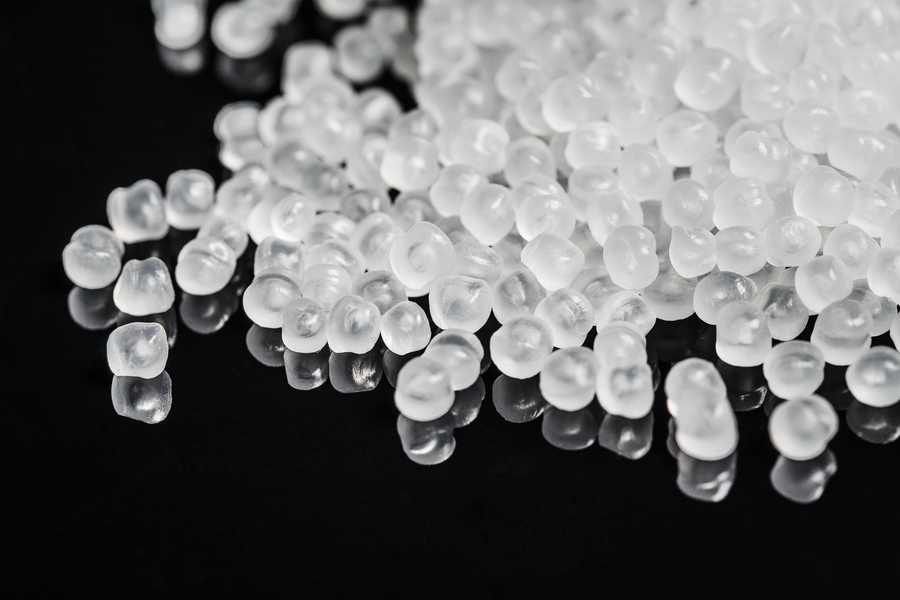
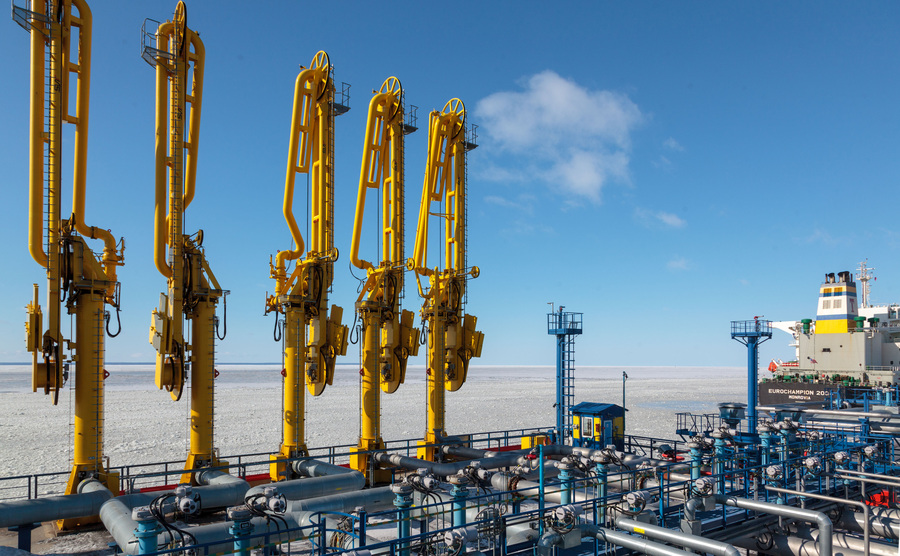

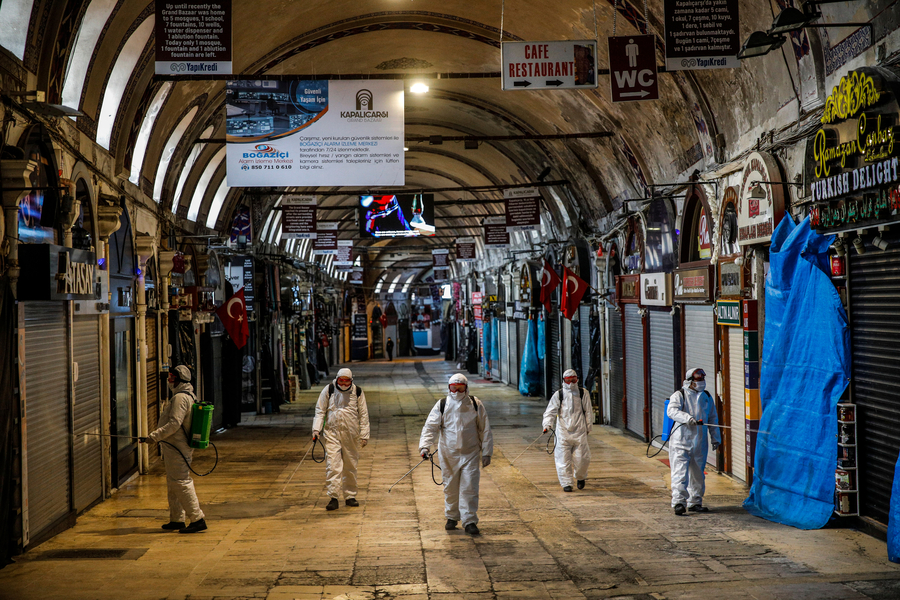
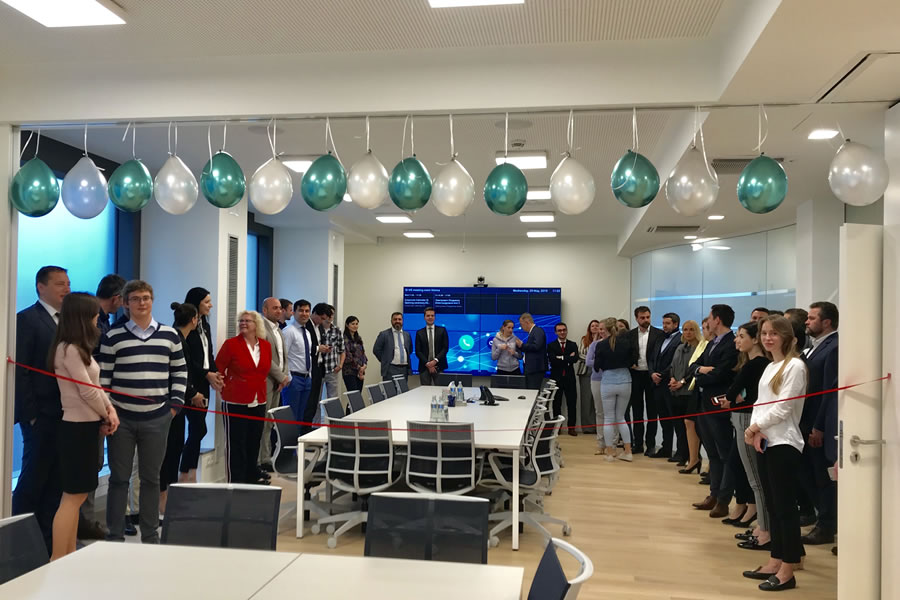

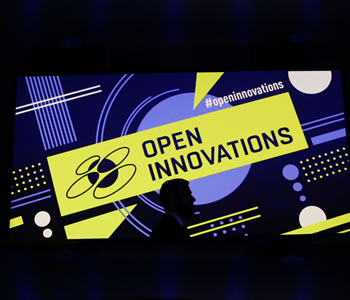


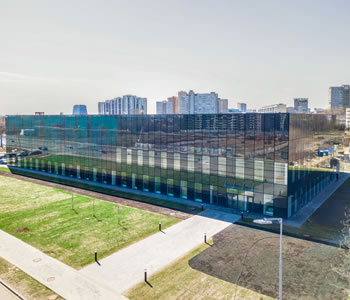
Andrey Frolov
“The competitiveness of our products in terms of physical, mechanical and chemical properties, our distribution network capabilities, the availability of trade finance and much more pushed us to actively learn from our peers and partners and adjust our processes and organisational structure”